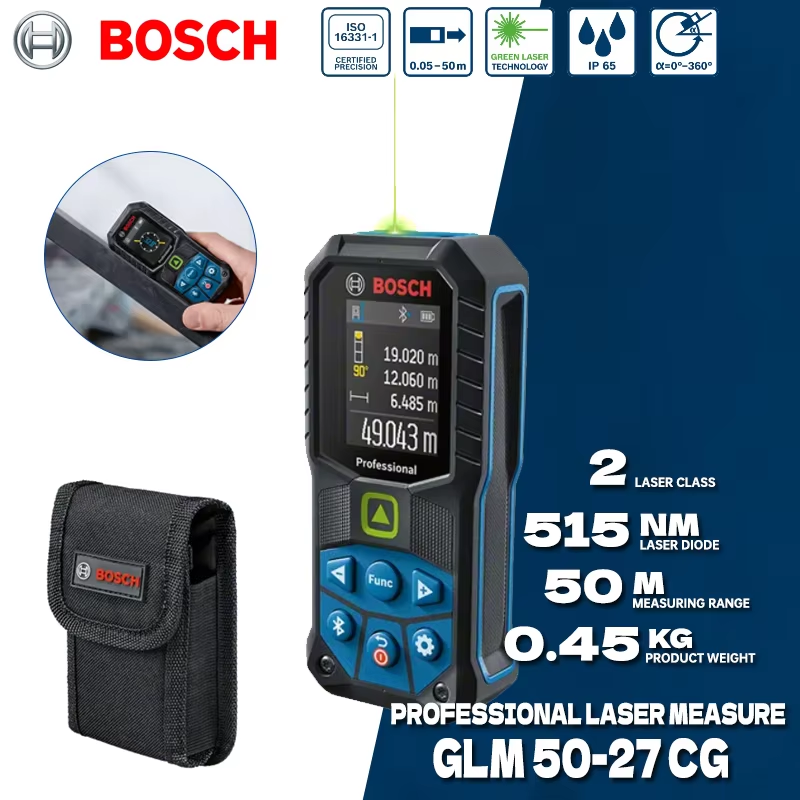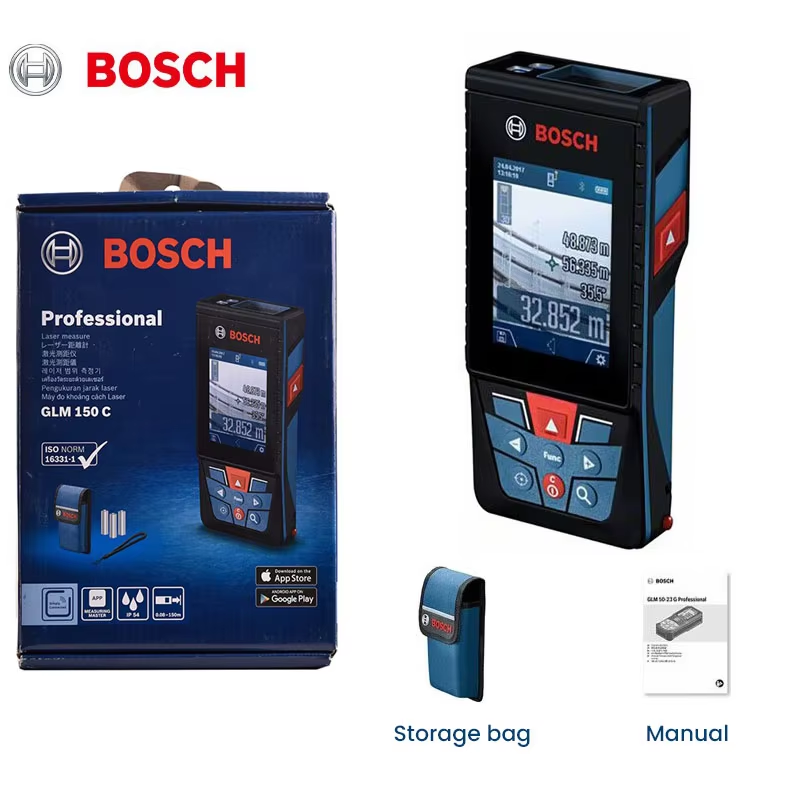This professional guide provides key insights into selecting the appropriate laser distance meter for various applications. It equips readers with the necessary knowledge to make informed decisions, detailing the considerations to take into account, from understanding the basic functionality to evaluating the advanced features and benefits of different models.
Understanding the Basics: What is a Laser Distance Meter?
A laser distance meter is a handheld device that uses laser technology to accurately measure distances between two points. It emits a laser beam towards a target, and then calculates the distance based on the time it takes for the laser beam to bounce back to the device. This technology allows for quick and precise measurements without the need for physical contact with the target. Laser distance meters are commonly used in various industries such as construction, real estate, interior design, and landscaping for tasks such as measuring room dimensions, calculating area and volume, and assessing building layouts.
The accuracy of a laser distance meter is typically measured in terms of its range, which refers to the maximum distance it can measure, and its precision, which indicates how closely the measured distance matches the actual distance. Most laser distance meters have a range of up to several hundred feet and can provide measurements with an accuracy of within a few millimeters. Some advanced models may also offer additional features such as Bluetooth connectivity, built-in levels, and the ability to calculate indirect measurements using trigonometry.
When using a laser distance meter, it is important to ensure that the target surface is reflective enough to bounce back the laser beam effectively. Smooth surfaces like walls and ceilings are ideal for accurate measurements, while rough or transparent surfaces may result in inaccurate readings. Additionally, factors such as ambient light conditions and obstructions in the measurement path can affect the device’s performance. Familiarizing yourself with the operational guidelines of the specific laser distance meter you choose will help optimize its functionality and ensure accurate measurements for your intended application.
Do You Know Your Needs? – Identifying Your Specific Requirements
When considering which laser distance meter to purchase, it is crucial to first identify your specific requirements to ensure you choose the right tool for the job. This involves assessing the nature of your projects, the frequency of use, and the level of accuracy needed. By understanding your needs upfront, you can narrow down the options and select a laser distance meter that best aligns with your requirements.
- 1. Project Scope and Environment:
Consider the type of projects you typically work on and the specific environments in which you operate. Are you measuring large outdoor distances for construction purposes, or smaller indoor spaces for interior design projects? The range and durability of the laser distance meter will be important factors to consider based on the conditions in which you will be using the device. - 2. Accuracy and Precision:
Evaluate the level of precision required for your measurements. If you need high accuracy for detailed design work or construction projects, you may want to invest in a laser distance meter with a smaller margin of error. Additionally, consider whether additional features such as Bluetooth connectivity or integrated functions like area and volume calculations would be beneficial for your workflow.
A Comparative Analysis: Evaluating Different Models
When it comes to choosing the right laser distance meter, conducting a comparative analysis of different models is essential to make an informed decision. Begin by researching and comparing various brands and models available in the market, taking note of their specifications, features, and performance capabilities. Look for key factors such as measuring range, accuracy, durability, and additional functionalities that may enhance your measuring tasks.
Additionally, consider reading customer reviews and feedback to gain insights into real-world experiences with different laser distance meters. Pay attention to user ratings, reliability, and overall satisfaction levels to gauge the quality and performance of each model. Comparing the pros and cons of each device can help you narrow down your options and select the model that best fits your requirements.
Moreover, take into account the reputation of the manufacturers and their track record in producing reliable and high-quality laser distance meters. Established brands with a history of delivering top-notch products may offer more assurance in terms of product quality and customer support. Compare warranties, after-sales services, and technical support to ensure you have a reliable backup in case of any issues or concerns with the device.
The price vs. Value Debate: Is More Expensive Always Better?
The price vs.
Value Debate: Is More Expensive Always Better?
When it comes to choosing a laser distance meter, the price versus value debate is a crucial consideration. While it may be tempting to opt for the most expensive model on the market, this does not always guarantee the best value for your needs. It is essential to assess whether the additional features and functionalities offered by a pricier model align with your specific requirements and justify the higher cost.
Before making a decision based solely on price, carefully evaluate the overall value proposition of each laser distance meter. Consider factors such as accuracy, measuring range, durability, ease of use, and additional features that may enhance your workflow. A more expensive model may offer advanced capabilities that could be beneficial for complex measuring tasks or professional applications.
However, it is important to strike a balance between price and value to ensure you are getting the best return on your investment. Evaluate the long-term benefits of investing in a higher-priced laser distance meter, such as improved efficiency, reliability, and durability, compared to a more budget-friendly option. Conducting a cost-benefit analysis can help you determine whether the additional cost of a premium model is justified by the enhanced performance and features it offers.
Choosing the right laser distance meter can greatly improve the efficiency and accuracy of your work. By understanding your specific needs and comparing them with the features of different meters, you can find a device that not only suits your budget but also optimizes your workflow. Remember, the best meter for you is one that meets your unique requirements and offers a harmonious blend of functionality, durability, and affordability.

BOSCH GLM 50-27 CG
Price Now: USD 110.17 (Original price: USD 169.50, 35% off) 🔗Click & Buy:

Bosch GLM 150 C
Price Now: USD 352.36 (Original price: USD 677.61, 48% off) 🔗Click & Buy:

Bosch GLM50-27CG
Price Now: USD 131.17 (Original price: USD 198.74, 34% off) 🔗Click & Buy: